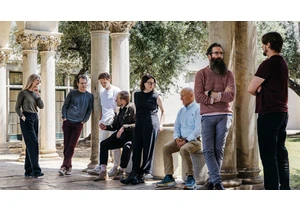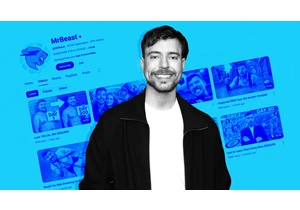A couple of weeks ago, Google revealed that 40% of 18 to 24-year-olds prefer TikTok or Instagram search over cheugy, Boomer-style Googling. Since then, the internet giant has come back fighting, by launching an educational campaign aimed at Gen Z.
Called “Let’s Internet Better,” the crusade features a series of short animated videos targeting misinformation, con artists, and catfishing online. Positioned as a call to action to help people become “smarter internetters” by using Google Search for fact-checking, the campaign logo features a rainbow color scheme and a shooting mouse pointer–a riff on the 1980s-era “The More You Know” television PSAs.
The 15-second videos have tongue-in-cheek titles, such as “Did someone just buy the sun?” and “Should you put slugs on your face?”
With more than 90% of global search-engine market share, Google Search is in no way facing any danger of obsolescence–though attrition of younger audiences and product searches to social media platforms and Amazon.com could be worrying early signs of changing consumer behavior.
“Google is the default for Millennials, Gen X, and Baby Boomers—in much the same way that Sears used to be the default for shopping,” says Flynn Zaiger, CEO of digital marketing and design agency Online Optimism. “Legacy and digital brands continually underestimate the diversity of Gen Z and their ability to critically think.”
Google says the campaign was designed with the intention to resonate with “Gen Z’s tone, humor, and aesthetics” to be a “fun, yet self-aware PSA that’s supportive and informative.” As part of the initiative, Google has partnered with some top TikTok creators—including Hank Green, Matt Taylor, Antonio Baldwin, and Alexia Del Valle—to publish content around internet safety and fact-checking. There are also videos that provide back-to-basics lessons in subjects such as reverse-image search.
Fair enough. Yet with reports and FTC data showing that it’s older age groups who are increasingly falling victim to online fraud–to the tune of $3 billion last year in the United States alone–it’s curious that the search giant has invested in an internet literacy campaign targeting Gen Z, a digitally native “hypercognitive generation” researchers describe as “very comfortable with collecting and cross-referencing many sources of information.”
“With this campaign, we wanted to speak directly to Gen Z, digital natives who shape much of today’s internet culture,” says Rebecca Michael, Senior Marketing Director, Google Search. “By partnering with them to think critically about the information they come across online and arming them with the tools and resources to check the facts and ensure credibility, we hope they’ll set the pace for others and help us make the Internet a safer, better place.”
Beyond social media apps and Amazon.com, in recent years, many websites and platforms, such as Reddit and LinkedIn, have doubled down on scaling user-generated content and improving search. And while the long-term sociological effects of narrowing search to within the parameters of niche internet communities are not yet known, a strong case can be made in support of theories that point to increased political and societal polarization–with The Network State by Balaji Srinivasan, a best-selling new release that details how to start a new country, providing a dystopian warning of where we might be headed.
Still, if nothing else, the campaign signals the degree to which understanding the habits and mindset of Gen Z users has become a major objective for the brain trust behind Google Search. As Prabhakar Raghavan, the company’s senior vice president of knowledge and information, explained at a business conference in Aspen, “We keep learning, over and over again, that new internet users don’t have the expectations and the mindset that we have become accustomed to. The queries they ask are completely different.”
Melden Sie sich an, um einen Kommentar hinzuzufügen
Andere Beiträge in dieser Gruppe

Two of the nation’s real estate titans are on a collision course.
Compass, one of the largest brokerage

A team of prominent AI researchers, led by Databricks and Perplexity cofounder Andy Konwinski, has launched Laude Institute, a new nonprofit that helps univers

YouTube star Jimmy Donaldson—aka MrBeast—is the face of the online video-sharing platform. He tops the platform’s most-subscribed list, with more than 400 million people following his exploits. On

Tesla deployed a small group of

Imagine you owned a bookstore. Most of your revenue depends on customers coming in and buying books, so you set up dif

For 13 years, Subway Surfers’ download rate has been consistent: about one million new installs every single day.
Half of those downloads come from users upgrading to new

Misbehavior on digital platforms can be tricky to manage. Issue warnings, and you risk not deterring bad behavior. Block too readily, and you might drive away your user base and open yourself to a
